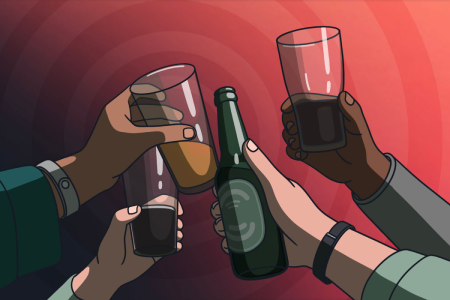
Hangover app & how to track the impact of alcohol on health with Welltory
Review everything about the impact of alcohol on health and get to know about the hangover app that will help you.
Home » Habits & Addictions » Questions & Answers about alcohol and how to drink responsibly

The effect of alcohol on the body can be significant: it negatively affects organ cells, promotes mutation and formation of oncology, disrupts normal metabolism, and reduces immunity. Moreover, alcohol is a drug that can cause all drug-abuse rellated problems, and especially addiction.
It is your liver, heart, and stomach that take the hit the most, but your other organs won’t thank you either.

Liver, an organ responsible for metabolizing alcohol, can break down only so much alcohol per hour. The rate of alcohol metabolism depends on the amount of metabolizing enzymes in the liver. In general, after having one standard drink, the amount of alcohol in the drinker’s blood peaks within 30 to 45 minutes.
When you down cocktails faster than your liver can metabolize, the concentration of alcohol in your blood rises, and you get drunk. The more alcohol you consumed, the harder it is for the liver to process it. Eventually, this waste buildups up in your body and leads to liver diseases such as steatosis (know as fatty liver), alcoholic hepatitis, and cirrhosis. As many as 47.9% of mortality cases due to liver diseases are alcohol-related.

The stomach releases an enzyme called dehydrogenase that breaks an alcohol molecule into toxic byproduct acetaldehyde. When in contact with your gastrointestinal tract, these byproducts damage tract’s tissues and mucus. It leads to abdominal complaints like heartburn, nausea, vomiting, flatulence, and stomach ache.

Alcohol and its byproducts weaken heart muscles and affect its ability to pump blood. Drinking also affects vessels and arteries. Heavy drinking can raise blood pressure that damages the artery walls and make them narrower over time. Moreover, downregulation of the immune system could lead to increased susceptibility to infections, which, in turn, could add to the development of heart failure. Binge drinking leads to “holiday heart syndrome” — chest pain and irregular heart beating after a party.

The damage alcohol causes to your brain is quite noticeable. Your brain maintains a certain balance of neurotransmitters to function properly— molecules that regulate your body’s behavior. Drinking distorts this balance: when there is alcohol in the system, your brain begins to alter these neurotransmitters depriving you of control over your performance. Alcohol is known to jack up dopamine levels in your brain that provokes a feeling of satisfaction. Booze tricks us into thinking we are having a good time when we are drunk. Your brain creates “a note” that the right thing to do will be to drink again.
More possible brain impairments that drinking leads to:

Alcohol depresses the central nervous system. The first couple of drinks stimulate inhibitory neurotransmitters and have a “pick-me-up” effect. However, talkativeness and animation will soon morph into slurred speech, hazy thinking, dulled hearing, sadness, and prolonged reaction time.

Booze affects the cerebellum, part of the brain that coordinates the work of your muscles. That is why reaching your nose with a finger becomes a challenging task.

Alcohol disrupts the activity of the hippocampus, a brain region responsible for memory. Excessive drinking leads to blackouts – periods of complete amnesia caused by intoxication. University of Kansas Professor Dr. Goodwin and his research group have found in one study that 64 out of 100 alcoholics had a history of blackouts.

Ever woke up after a fun night with puffy eyes and a swollen face? Alcohol consumption leads to loss of elasticity, early wrinkles, and sagging skin as well as dryness, dullness, and enlarged pores.
Moreover, drinking excessively is proved to cause hypoxia of tissues and to slow down the healing of wounds on your skin. 100 mg/dl blood alcohol level (3-5 drinks for a woman and 5-8 for a man) reduces the gene expression of collagen type I and undermines dermal stability leading to bad skin and wounds that won’t go away.

Regular drinking undermines the entire immune system and provokes susceptibility to all kinds of bacterial diseases and infections. For example, 7-9 drinks consumed by a 55 kg person or 11-14 drinks consumed by a 90 kg person would result in a blood alcohol level of 200 mg/dl. This particular level is associated with a 2.6 fold increase in wound-related infections like yeast, erythemas, cellulitis, and others.
Short-term risks appear almost immediately after alcohol consumption, and they include nausea, headaches, slurred speech, high blood pressure, and others. Long-term risks appear as a result of continuous alcohol abuse and include diseases and health conditions like liver cirrhosis, nerve damage, gastritis, and others.
Alcohol affects your decision-making mechanisms that are built on the brain’s activity. Scientists point out that brain parts responsible for the evaluation of positive and negative consequences of our actions also fail to function properly in presence of alcohol. And if you have ever had more drinks than intended, you might recognize the following situations:
Just be cautious. Indeed, very few social events don’t include champagne, martinis, vodka on the rocks, and other drinks that perk us up to actively socialize. Sometimes not drinking might even feel inappropriate. But even within the confines of etiquette, you can drink smart and minimize the side effects that alcohol bears.
Here’s what you can do:
In addition to all the health ramifications, alcohol won’t help you make smart career decisions at a work meeting. Remember that the weaker your drink is, the stronger your position will be.
Absolutely not! If you didn’t manage to dodge a hangover and woke up with your head spinning, hands shaking, and mouth dry, the last thing you want is to extend this condition any longer. And this is exactly what the “hair of the dog” drink does.
As Dr. Daniel K. Hall-Flavin of the Mayo Clinic says, having another drink in the morning “will provide a numbing effect, but all you’re doing is prolonging the inevitable, and it will likely make your headache worse.” If you have a Bloody Mary for breakfast, the hangover will just come later during the day.
Welltory Team, 11 Mar. 2022

Review everything about the impact of alcohol on health and get to know about the hangover app that will help you.

Addiction is a habit that has become such a big part of your life that you experience withdrawal symptoms if you try to give it up.
 App Store
App Store
 Google Play
Google Play
 Huawei AppGallery
Huawei AppGallery
 Galaxy Store
Galaxy Store







